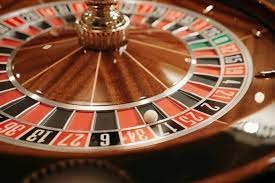Do Bias Wheels Still Exist in Online Roulette?

Roulette has captivated casino players for centuries with its simple yet suspenseful mechanics of a spinning wheel and ball. But behind the flashy exterior of this iconic table game lies sophisticated precision engineering to ensure fair odds. Or does it? While land-based roulette wheels have long faced scrutiny over subtle biases, what about the virtual wheels used in online roulette? Do they truly deliver the perfect randomness they claim?
Quest for the “Perfect” Roulette Wheel
In both online and live casino roulette at Neo Spin, the wheel is supposed to be balanced to precision standards that ensure a random outcome on every spin. However, achieving this level of perfection has proven elusive. Over the decades, players have detected slight flaws in manufacturing that cause certain wheel sectors to come up more frequently. These imperfections are called bias.
Why Biases Occur
Biases emerge when the roulette wheel’s weight distribution is slightly imbalanced. This can happen due to:
- Imperfections in materials and craftsmanship
- Wear and tear over time
- Improper level installation
The result is that the wheel may develop a tendency to land on some numbers more often. Skilled roulette players exploit these biases to improve their odds by tracking wheel spins and betting on hot sectors.
Do Online Wheels Have Biases?
When online roulette first appeared in the early 2000s, it replicated the wheel physics from live casinos. The results were displayed on a graphical interface. Like their physical counterparts, these simulated wheels had occasional biases.
However, as technology has improved, RNGs (random number generators) now determine spin outcomes. The graphics simply visualize this random behavior. Reputable online casinos are regularly audited to ensure their RNGs operate fairly. But some players still question if biases creep in from other sources.
Factors That Can Undermine Online Wheel Randomness
While modern RNGs are considered bias-proof, other parts of online roulette may introduce variables that undermine randomness. Potential weaknesses include:
Software Glitches
If the code governing wheel behavior has bugs, it could cause certain numbers to hit more frequently. Bias could also emerge if RNG seeding is flawed.
Server Bandwidth
Some speculate that during times of high internet traffic, delays in spin data transmission could subtly impact where the wheel lands.
Players’ Computers
Factors like CPU power, graphics capability and internet strength on the user’s device might influence wheel rendering enough to create bias.
So even with certified RNGs, there may be vulnerabilities further down the chain. Let’s examine the evidence.
Evidence of Biases in Online Roulette
Statistical analysis offers the best way to detect any significant deviation from expected probability in online roulette spins:
| Chi-Squared Test | Compares actual results to expected probability distribution and calculates variance |
| Standard Deviation | Measures amount of dispersion in dataset from average |
| First Law of Error | Tracks increasing probability of numbers that have not hit for a long time |
Running these tests requires a huge number of spins. One Swedish player named Leif analyzed over 2 million spins across several online casinos. He found statistically significant evidence of biases favoring certain sectors.
However, skeptics caution that apparent patterns can emerge randomly in small datasets. Extended trials are needed to definitively prove bias. For players, identifying any exploitable patterns takes dedication.
Approaches to Conclusively Identify Bias
Can average roulette fans really detect subtle bias in online wheels? Here are some tactics that may uncover secrets in the spins:
Spin History Analysis
Reviewing past spin data with statistical tools can reveal clues of bias. Large samples sizes are key — analyzing 5,000+ spins from a wheel provides stronger signals. Players may need automation to gather enough data.
Multi-Wheel Tracking
Comparing stats across a casino’s low and high stakes wheels can highlight shared biases. If the same sectors prove hot, it may indicate software issues.
Cold Number Hunting
Numbers that haven’t hit in extremely long periods despite probability suggesting they should have may indicate RNG manipulation. However, beware of seeing false patterns in randomness.
Third-Party Testing
Many jurisdictions require independent audits of RNGs. But open questions remain around other software and infrastructure. More transparency could improve trust.
Are Online Wheels Truly Random?
Given the complex technology involved, it seems plausible that some subtle bias might emerge in online roulette. Players have produced data indicating certain number sectors and even individual numbers hit more frequently across some casinos.
However, definitively proving bias requires immense spin analysis. For casual players, exploiting such minute edge tilts may not justify the effort. They are better off focusing on basic strategy.
In the end, while online wheels may not achieve “perfect” randomness, they come far closer than their live counterparts. And with reputation vital for gaming sites, most work diligently to eliminate systematic bias. So concerns around the integrity of online roulette should not deter most players from enjoying this classic casino game.







